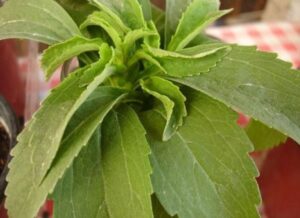Latest Offender of the Term ‘Natural’? Beloved Sugar-Alternative, Stevia

Stevia, the revered South American plant popular in the U.S., Europe and Japan for its natural sweetness and use as an alternative to chemically-derived artificial sweeteners like saccharin and aspartame, is now facing hurdles of its own regarding claims that the product is natural.
Several EU Member States are looking at the process by which stevia is turned from a leaf into a powder: the plant’s potent glycosides are extracted in water, purified using ion exchange chromatography and then turned into a crystallized state using ethanol or methanol. Arguably not one of Mother Nature’s more routine processes, the EU Member States are concerned about labeling stevia as natural in light of the processing steps. One option being considered is to re-label stevia products as “derived from natural sources” instead of callng the products natural sweeteners.
Three hundred times sweeter than sugar, stevia has been embraced by individuals seeking to curb their sugar intake and avoid the side-effects and risks with other artificial sweeteners. Brands including Coca-Cola and Danone have begun using stevia in a number of products helping to boost the plant’s benefits to prominence.
While still considered to have more benefits than concerns, sensitivities are increasing all across the food industry about the use of the term “natural.” The unregulated term’s use on food labels and in advertisements has led to a number of lawsuits recently — including ConAgra for its use in Wesson oil which contains genetically modified oils, Frito Lays, also for calling its products natural when its chips contain genetically modified ingredients — which the World Health Organization defines as organisms that would not occur naturally.
Keep in touch with Jill on Twitter @jillettinger
Image: hardworkinghippy

